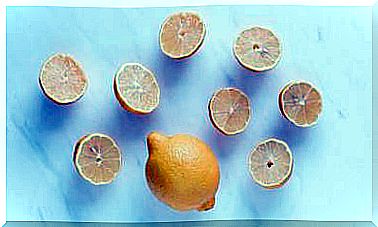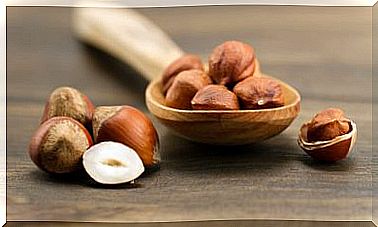Sweet Mugwort: Properties And Contraindications
Sweet mugwort is also known as sweet wormwood. It is a medicinal plant that for years has been used for various therapeutic purposes. What are its benefits? In this space we detail them.
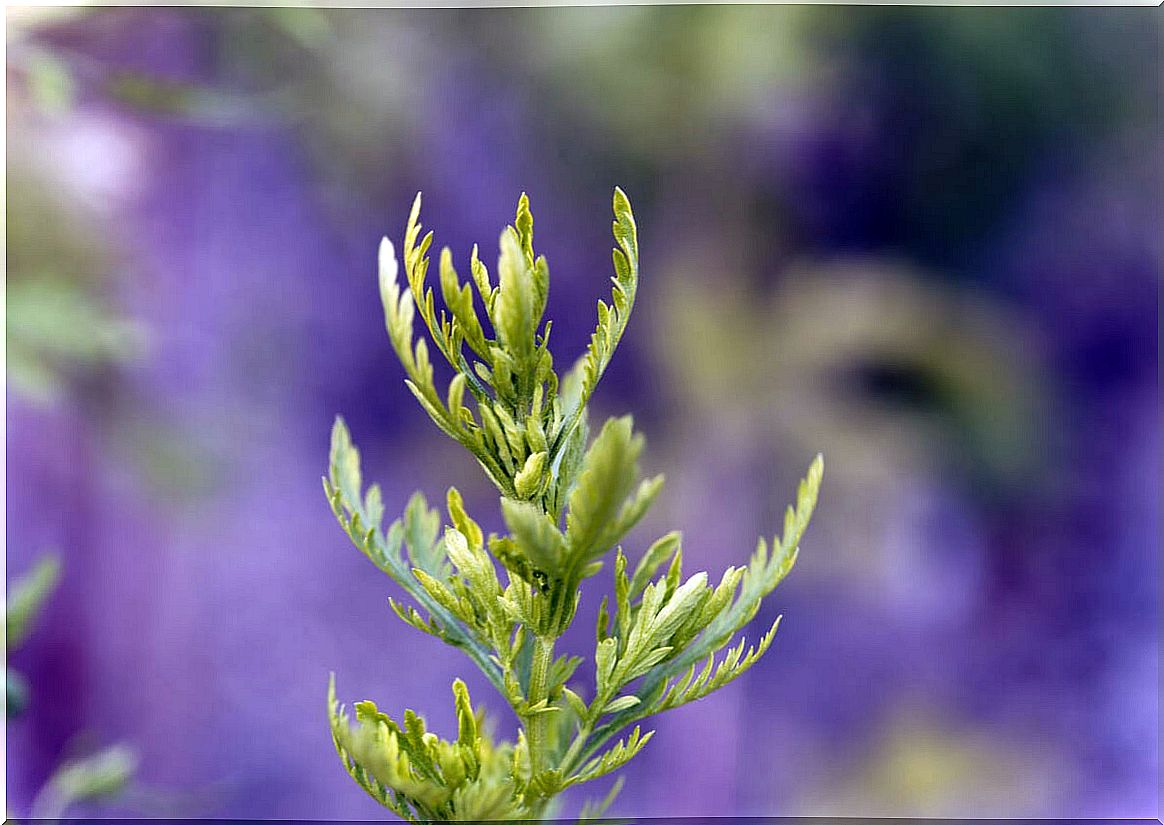
Sweet mugwort (Artemisia annua), better known as “sweet wormwood” or “Chinese wormwood”, is a plant that belongs to the Asteraceae family . It comes from temperate Asia, but it is also present in countries of central and southern Europe, the United States and Canada.
It is known for its applications in traditional Chinese medicine, since since ancient times it has been used as an adjuvant to lower fever. It also has a long history as a supplement against malaria and a variety of other diseases. Do you want to know more about it?
Properties of sweet mugwort
Many of the properties of sweet mugwort (Artemisia annua) are supported by research. Thus, at present it is known that it is a plant that contains flavonoids, essential oils and an active compound called artemisinin (ARS), to which a large number of its health effects are attributed.
In particular, and as stated in an article published in The Korean Journal of Physiology & Pharmacology , artemisinin has shown potential as an anti-inflammatory, antioxidant and antimicrobial. Also, other pharmacological activities such as cytotoxicity against cancer cells and antifungal activity have been reported.
Does mugwort cure malaria? Is it true that it can fight cancer? To resolve these questions it is necessary to address in detail some of the research that has been done in this regard. Let’s see the most relevant below.
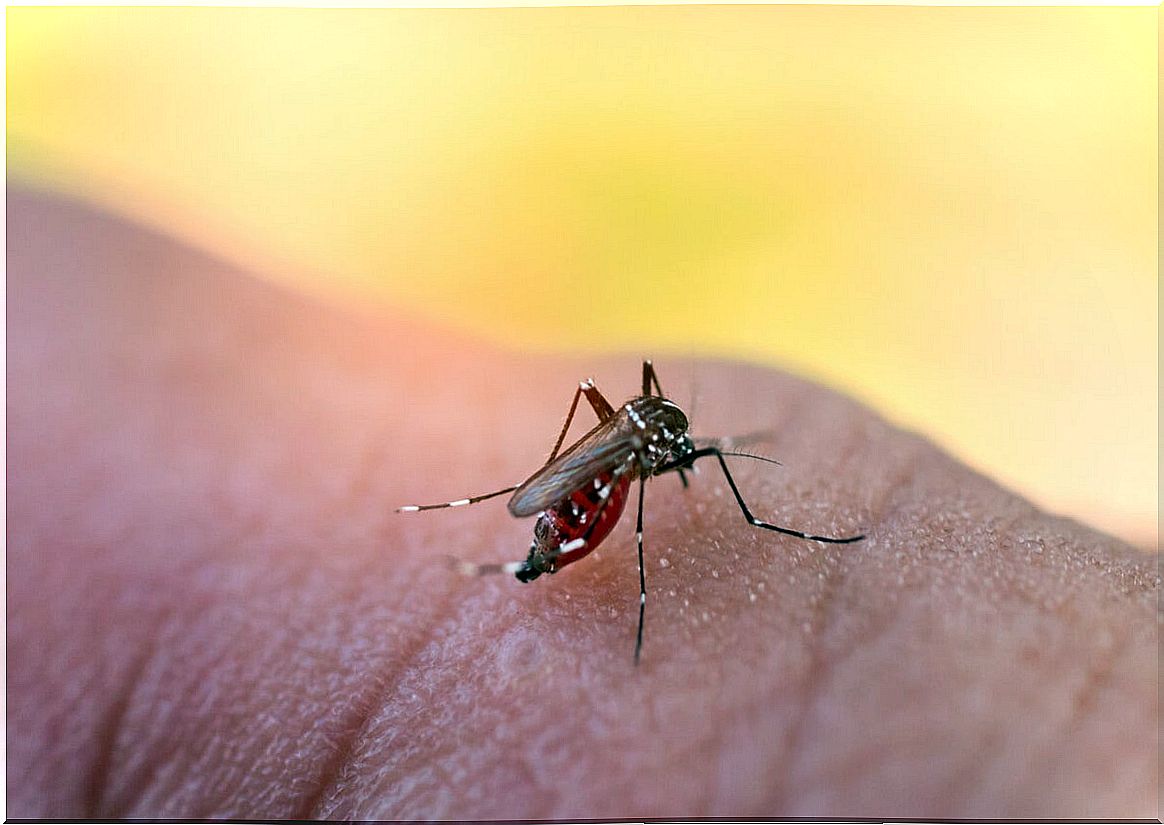
Sweet mugwort against malaria: is it effective?
A wide variety of scientific research, such as one published through the World Journal of Pharmacolog and, shows that artemisinin, the main active compound in sweet mugwort, acts effectively against the parasite that causes malaria. However, its use should not be taken lightly.
The World Health Organization (WHO) suggests avoiding the use of herbal remedies with dried Artemisia annua leaves and instead prioritizing treatment with drugs made from artemisinin and other compounds.
Is Sweet Mugwort a Cancer Treatment?
For some time, sweet mugwort was popularized as a purported cancer cure. However, these claims were denied by official entities and members of the scientific community. Although the effects of artemisinin and dihydroartemisinin against cancer cells are being studied, the results are not yet conclusive.
However, as a study published in the Cureus Journal of Medical Science exposes , the findings on the use of artemisinin against cancer pathology are promising. It is believed that, in the future, it could contribute to the treatment of colon, breast and lung cancer. However, as we have mentioned, evidence is lacking and it is not a treatment of choice against this disease.
Do you have other benefits?
For now, the main pharmacological application of sweet wormwood has to do with the treatment of malaria. Still, due to its composition and properties, other health benefits are attributed to it. These include the following:
- Helps strengthen the immune system and reduces the risk of influenza and viral infections.
- It is an adjunct in the treatment of constipation.
- It favors the relief of pain in the joints.
- Helps control fever.
- It has digestive properties.
How is this plant used?
In traditional medicine, sweet mugwort is used in the form of tea or infusions. However, in case of malaria and other serious diseases this form is not recommended. In fact, the ideal is to consult your doctor to know the presentations of drugs with artemisinin and their appropriate doses as appropriate.
The plant can also be found in the following forms:
- Mugwort decoction.
- Hydroalcoholic extract of mugwort.
- Natural supplements based on mugwort.
- Mugwort mother tincture.
- Capsules
Due to the lack of evidence on their safety and efficacy, it is essential to exercise caution when using these products, especially if you are taking other medications or if there is an underlying disease of care.
Contraindications of sweet mugwort
Before taking any preparation based on sweet mugwort, it is essential to consult your doctor or herbalist. It should not be ignored that the plant is not exempt from causing side effects. Also, excessive doses can cause neurotoxicity.
The herb, like its derivatives, is contraindicated for pregnant women, especially during the first trimester. Nor should it be used during breastfeeding or if there is a history of allergy to the plant. Side effects include the following:
- Abdominal pain, diarrhea, nausea, and vomiting.
- Itching, hives and rash.
- Cardiovascular changes involving bradycardia and prolongation of the QT interval.
- Metabolic changes, including hypoglycemia.
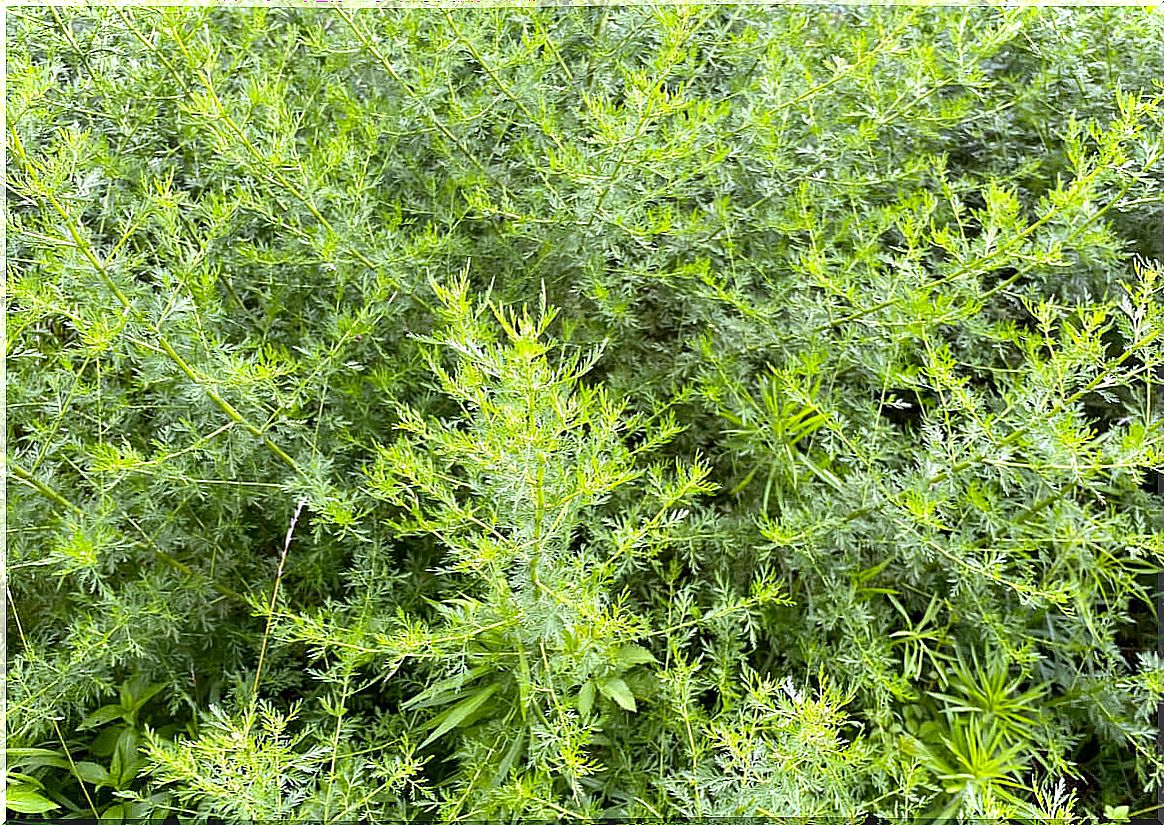
Sweet mugwort: a plant to use with caution
Many of the medicinal properties of sweet mugwort are supported by research. However, more studies on its safety and efficacy are still needed. Because of this, the plant, its extracts and other derivatives must be used with caution.
Prolonged use is not recommended due to the health risks it entails. The ideal way to take it safely is to consult your family doctor or herbalist. Both will be able to determine if it is convenient to use it and in what dose. Keep that in mind!


